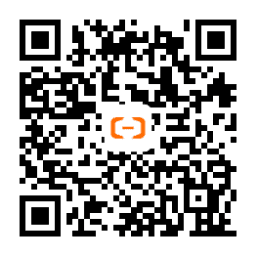The care and maintenance of your adviser
Ever since the advent of graduate school, students have complained about their advisers. It is almost an article of faith. The adviser is never available or is too available; gives too much feedback or not enough; is too critical or isn't providing enough direction; and so on. Exchanging horror stories with other students is a great way to bond. But advising goes both ways — and if, after careful reflection on their own studies and progress, students determine that they are not getting the guidance they require, they must address the deficiencies.
It is not surprising that advisers figure large in graduate students' conversations. In 2009, the US Council of Graduate Schools in Washington DC reported survey results showing that 65% of the 1,856 doctoral students who responded identified mentoring or advising as a main factor in PhD completion. Our own research at Flinders University in Adelaide, Australia, and our experience at graduate-student workshops across the world suggest that the adviser–student relationship has a big impact on completion time. It certainly influences whether students are still smiling at the end of their degrees!
Students often assume that once they call someone an adviser, he or she automatically acquires all the skills of advising. After all, if your adviser is the world leader in stem-cell technology, he or she must excel at the seemingly simple task of advising — not to mention possess highly developed interpersonal skills and a keen interest in graduate-student development. Sadly, that is not the case.
IMAGES.COM/CORBIS
Sometimes, advising is a weakness of an otherwise very accomplished scientist. This is not surprising. Mentoring tends to be a private business, and often the only model available is an adviser's own experience of having been advised. If it was good, they decide to copy that style and methodology; if it was bad, they do the opposite. There is no guarantee that either approach will provide the student with the guidance he or she needs.
A proactive approach is necessary. If your adviser isn't looking after you in the way you need, then you need to look after them. At some point in the PhD journey, most graduate students come to an important realization: “This is my thesis. My name is written on the front of it. I need to become the driver.” The sooner the candidate does this, the better. If you're not getting feedback, clear direction or the necessary resources, then you must do something about it. What does this mean in practice? Let us take some examples.
Meetings
A comment we often hear at our workshops is, “My adviser is lovely but he/she is just so busy that we never get to talk about my thesis”. And our response is, “Yes, your adviser is busy. All advisers are busy and will continue to be busy. Regardless, you need to organize meetings where you can get real face time and talk about your thesis.” We're not recommending a quick chat in the coffee room or a brief word in the lab. Nor do we mean a lab meeting.
We mean regularly scheduled meetings focusing on your thesis. You will probably have to schedule them and follow up to make sure that they happen. And when a meeting is cancelled, you will have to reschedule it and persist until it happens.
In our experience, just scheduling the meeting isn't enough. You can't assume that your adviser hosts productive meetings or can intuit what you need to know. You need a specific, uncomplicated agenda that could include such action items as what you've done in the past two weeks; feedback on written work; what you'll do in the next two weeks; the next meeting.
This all sounds very straightforward. But if more students followed these steps, many adviser–student issues could be resolved.
Feedback
Again, in an ideal world, your adviser would be skilled at providing supportive comments, delicate in pointing out areas for improvement and deft at intuitively knowing the level of feedback you seek. But this is a fantasy. One student described her feedback experience as similar to being a victim in a drive-by shooting — she handed over her work, it was riddled with bullets and she was left with a bloodied mess as the shooter drove off.
To be fair, e-mailing a chapter to an adviser and saying “Give me feedback” is like walking into a restaurant and saying “Give me food.” You need to be a bit more specific. When handing over your work, identify the type of feedback you are looking for. You might say, “This is an early draft, so I just want feedback on the overall direction,” or “Please focus on the discussion on page six.” If the feedback you get isn't helpful, ask for more detail. Maintaining your adviser means asking for what you need rather than hoping that he or she will know what to provide.
Managing up
One of the secrets of looking after your adviser is working out what they want — and what most advisers want is a student who comes to them with suggestions and solutions as well as problems, gets things done and makes the job of advising easier. In business this is called 'managing up'. When we work with graduate students we call it the 'care and maintenance' of your adviser.
So although it is natural to complain about your adviser — and can even be cathartic — it is not enough. If your adviser is not giving you what you need, you need to go out and get it.
Reference:
https://www.nature.com/naturejobs/science/articles/10.1038/nj7331-570a







